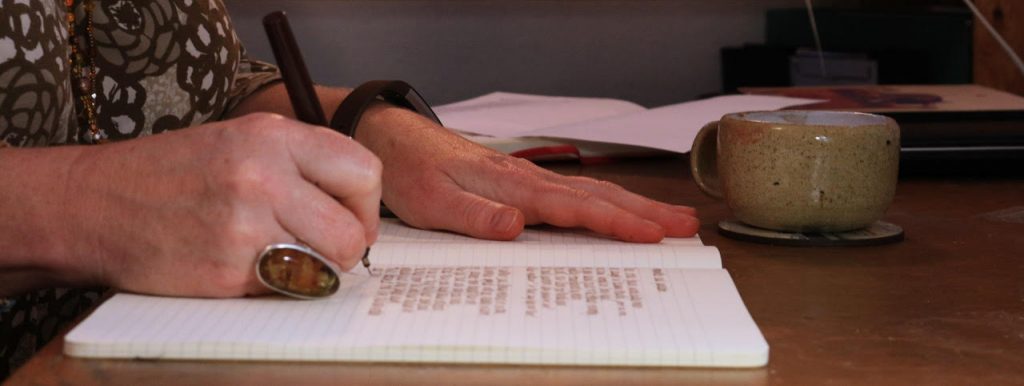For me, it’s got to be ‘The Second Coming‘ as poem of the day today (hear Dominic West read it here). Election day in the UK, and a sense of no good news ahead, whether nationally or globally… The poem’s cascade of nightmarish images strikes fear into me; or rather, makes visible the fear that is already there. Bits of the poem have echoed round my mind often over these last few years, offering a sort of grimly reassuring sense that dread is, if nothing else, a shared experience. Doom has impended before; feels impending now; and seems likely to continue to impend until it breaks, or cracks, or whatever it is that doom does when it’s no longer future but present tense.
‘The Second Coming’ is a complicated and dense poem about which many articles and chapters have been written by those far wiser about Yeats than I, so I’m not attempting a complete reading of it. Instead I want to pick out a few images which really speak to me. The line with me most often is ‘The best lack all conviction, while the worst/ Are full of passionate intensity’. Yes indeed. I look at those who claim to represent me—who have world-shaping, world-ending power—and despair. Venting about and hating them can be satisfying for a while, but when all the vitriol has sizzled away the helpless fear and sorrow about where we are heading remains.
And what of the other images in this first stanza? The falcon pictured at the beginning, ‘[t]urning and turning in the widening gyre’, evokes a sense of things spinning centrifugally out of control: the ‘gyre’ (as in gyrate) is a spiral getting wider and wilder and further from the centre (or ‘falconer’), the point of groundedness—so that ‘Things fall apart; the centre cannot hold’. As a summary of how Things In General feel at the moment, to me anyway, I think that’s hard to beat. The ghastly imagery—’blood-dimmed tide’, ‘ceremony of innocence is drowned’—may have come out of the mass slaughter of WW1 (the poem was written in 1919), but the resonances are universal and profoundly disturbing. The sense is of being flooded—overwhelmed—with all that is not innocent: that guilt, wickedness, harm and hopelessness are ‘dim[ming]’ our very existence.
For Yeats, the gyre also represented a cycle of human history, so that here he is noting the end of a positive cycle, as initiated by the coming of Christ, and the beginning of a negative one, as ushered in by the ‘Second Coming’ of the terrible ‘rough beast’ in stanza two. The situation is so extreme that ‘surely some revelation is at hand’: the sheer awfulness of the present suggests that something apocalyptic is imminent. The imagery associated with the beast appals: the beast is ‘vast’, with a gaze ‘blank and pitiless as the sun’ (which, after all, does not mean to kill, merely does so as a by-product of its existence if there is too much or too close exposure to it). There’s something deeply, shudderingly horrible about the beast ‘moving its slow thighs’ and ‘slouch[ing] towards Bethlehem’; while the ‘reel[ing]… desert birds’ suggest vultures circling the decaying dead. But why are they indignant? What has disturbed even them?
Amidst all this flashing, horrifying, confusing imagery, the word ‘know’ stands out: ‘now I know/ That twenty centuries of stony sleep/ Were vexed to nightmare by a rocking cradle’. That juxtaposition of ‘cradle’ and ‘nightmare’ is particularly shocking: rocking, designed to soothe, is ‘vex[ing]’, and sleep is not restorative but ‘stony’. The poet ‘know[s]’—ie, is absolutely sure—that something is very wrong but can only close with a question: ‘what rough beast’…? Unease. Nameless dread. Sorrow. Horror, waiting in the wings. I read this poem and I shiver.
Not feeling safe; not feeling I can trust in the world or the people who shape it; not feeling any hope: ‘The Second Coming’ says all that for me, and I felt moved to read and think about the poem today. Thank goodness, then, for those other times and moods when I can be more George Eliot about things, remembering the close of Middlemarch and the narrator’s modest but confident claim: ‘the growing good of the world is partly dependent on unhistoric acts; and that things are not so ill with you and me as they might have been, is half owing to the number who lived faithfully a hidden life, and rest in unvisited tombs’. Let us huddle round that thought together, relishing its warmth in the cold, taking it as an antidote to all that sorrow, dread and despair.

I’ve just started in my quest to read Middlemarch. Am up to page 75. Am marvelling at her ability to put it together.
Today of all days I’m filled with joy to hear that you’re enjoying this great, great book. So excited to know it. thanks, Phil x